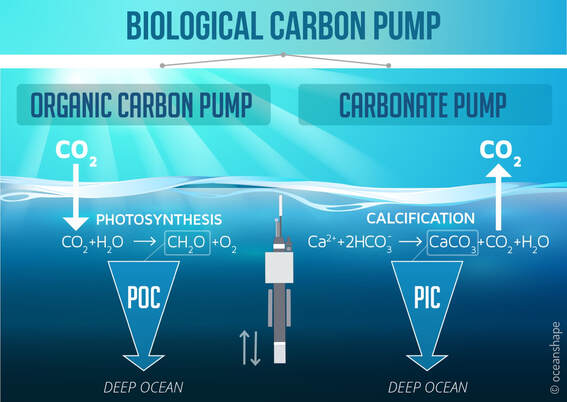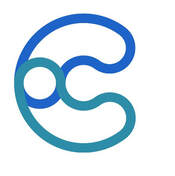Summary
The ocean’s biological carbon pump (BCP) plays a crucial role in storing atmospheric CO2 in the deep ocean, thereby isolating carbon from the atmosphere for decades to centuries. Yet, its capacity to do so is under-constrained and its mechanisms poorly understood.
The CarbOcean project will develop a mechanistic and quantitative understanding of the BCP using a novel integrative approach that accounts for its two component pumps: (1) the organic carbon pump driven by the photosynthetic production of particulate organic carbon (POC), and (2) the carbonate pump driven by the production of particulate inorganic carbon (PIC).
The CarbOcean project will develop a mechanistic and quantitative understanding of the BCP using a novel integrative approach that accounts for its two component pumps: (1) the organic carbon pump driven by the photosynthetic production of particulate organic carbon (POC), and (2) the carbonate pump driven by the production of particulate inorganic carbon (PIC).
|
In CarbOcean, we will develop a new optical sensor for autonomous quantification of PIC. This technological breakthrough will in turn empower a unique robotic approach to quantify the two key components of the biological carbon pump, which together determine the net transfer of CO2 to the deep ocean and the fate of carbon in the ocean twilight zone.
The robotic ocean profilers will be deployed in a wide variety of ocean environments to gather carbon observations and environmental parameters from the well-lit surface ocean through the underlying twilight zone at high spatiotemporal resolution. The observations collected by CarbOcean’s robotic profilers will then fuel hypothesis-driven research on the transformations and fate of carbon in the twilight zone, and facilitate improved representations of the biological carbon pump in biogeochemical models. |
The CarbOcean project comprises the following work packages:
|
Technological development.
Development of PIC and POC sensors. Sensor calibration and validation. Integration of new sensors onto robotic profiling floats of type Biogeochemical-Argo (BGC-Argo). |
Work at sea and float deployment.
Float deployment along a latitudinal gradient across the Atlantic Ocean. Collection of ship-based data for float sensor cross-calibration. Characterising the planktonic community and ocean carbonate chemistry. |
Examining BCP component pumps.
Quantifying strength and efficiency of BCP component pumps. Examining spatiotemporal variability and pump interconnection. |
Funding
CarbOcean is a five-year research project funded by the European Research Council (ERC) under the European Union’s Horizon 2020 research and innovation programme with grant number ERC-StG2019-853516. The grant is awarded to Griet Neukermans at Ghent University.






